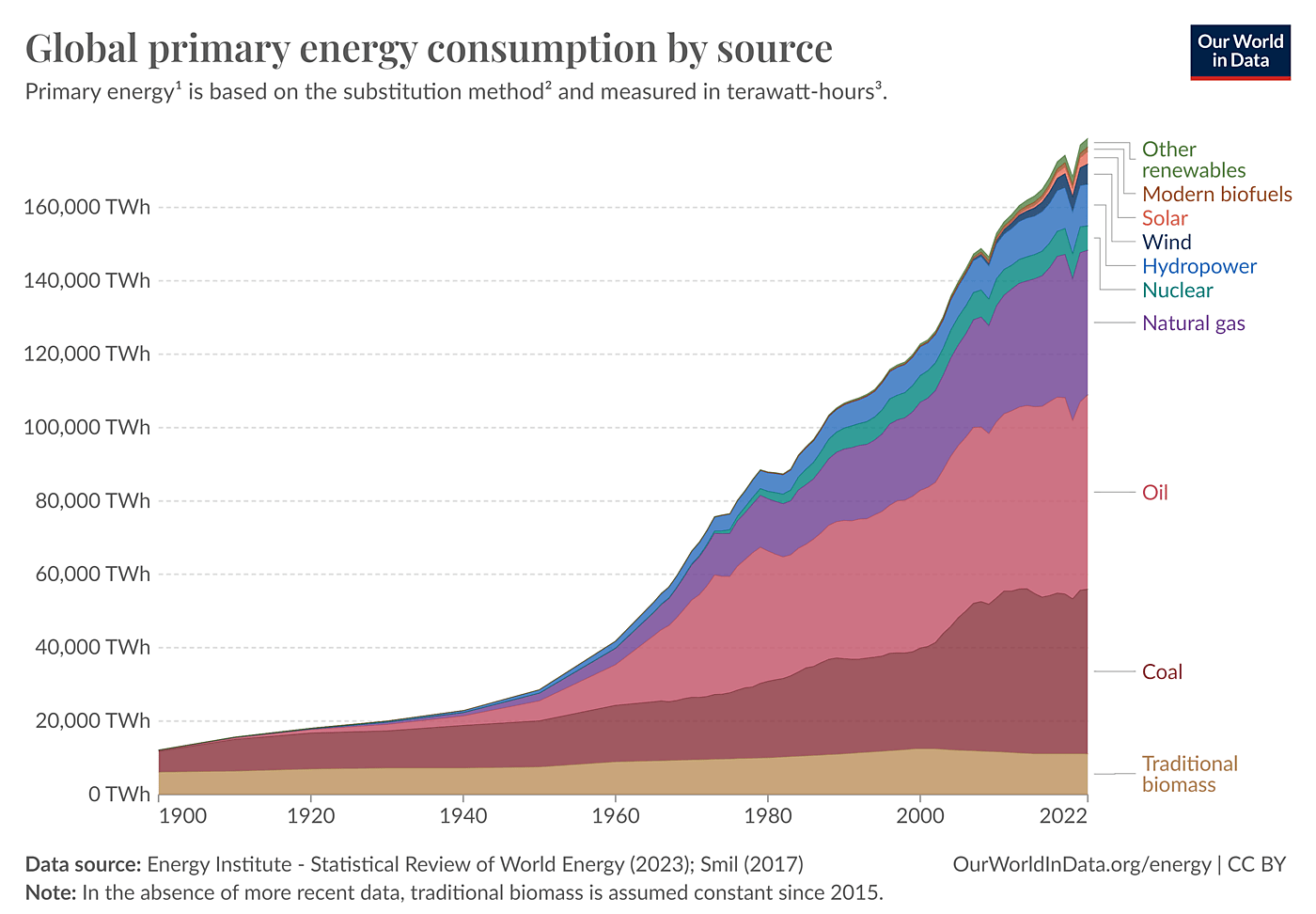A Different Perspective on “Climate Change and Globalization”

Travis Fisher and Alex Nowrasteh
In a recent piece titled “Climate Change and Globalization,” Charles Kenny argues that globalization can help reduce the negative effects of climate change and even help reduce CO2 emissions. The essay was one of twelve in the Cato series Defending Globalization: Society and Culture. Although we agree with the call for liberalized global trade, we disagree with many of the essay’s recommendations regarding climate policy and multilateral agreements.
First, let’s recognize some common ground. We greatly respect Dr. Kenny and value the open exchange of ideas. One of the authors of this blog post (Alex) read Kenny’s book The Plague Cycle and thought it was masterful. We also agree that free trade means: higher incomes, easier adaptation to a changing climate, and reduced costs of CO2‐mitigating technologies (through the removal of tariffs that inflate the cost). All of these changes lessen the negative impacts of climate change.
However, Dr. Kenny goes further than free‐market economists would suggest when it comes to mitigating the CO2 externality. He endorses the goal of “net zero” CO2 emissions and argues for a global cap‐and‐trade system to achieve it. Reading Dr. Kenny’s piece, we came away with the impression that CO2 is an unalloyed bad; in contrast, we see it as the result of the productive use of hydrocarbon energy, which represents over 80 percent of global primary energy use. We must avoid calls to swiftly move away from hydrocarbons simply because they (likely) introduce a negative externality—especially when the cost of such an energy transition isn’t well considered.
“Net Zero” CO2 Is Not a Desirable Goal
Under a Pigouvian approach to internalizing a negative externality, economists advocate for “pricing” (read: taxing) the externality rather than eliminating it at all costs. In other words, the textbook policy prescription—assuming we know the social cost of CO2 (SCC)—is to tax CO2 emissions at the SCC and then let emission levels fall where they may. Capping the quantity of CO2 emissions would only be an economically efficient policy in the unlikely scenario that the level of the cap happens to equal the quantity of emissions produced under an efficiently‐priced SCC.
Based on real‐world observations, the efficient level of CO2 emissions under a Pigouvian approach is not zero. Given the myriad productive uses of hydrocarbon‐based energy and the demonstrated preference for the large and growing global consumption of it, the economically efficient level of CO2 emissions could be very high. Unfortunately, we may never know because the SCC—although indispensable in concept—is nearly impossible to nail down with any degree of scientific certainty. We do know, however, that low and moderate CO2 taxes like the one implemented in British Columbia have not significantly reduced CO2 emissions.
Kenny writes:
But efforts to put legally binding caps on carbon dioxide emissions or to create a global market for the right to emit carbon dioxide (a “cap and trade” regime) have floundered. That’s unfortunate: markets really are likely the most efficient way to reduce global emissions, and the failure to develop one has surely slowed progress toward a low‐carbon global economy.
The level of CO2 tax implied by a “net zero” cap‐and‐trade system is inefficiently high under a Pigouvian framework. Specifically, a net zero policy is only economically efficient if the SCC matches the cost of CO2 removal. Presently, CO2 removal technologies cost multiple times more than even the EPA’s inflated estimate of the SCC. In other words, reasonable estimates of the CO2 externality do not justify the “net zero” emissions future envisioned by Dr. Kenny.
Industrial Policies and Global Treaties Are No Silver Bullet
Kenny rightly concludes that the economic cost of ending global trade, migration, tourism, business travel, and reducing “food miles” are not worth it because they would negligibly reduce emissions at enormous economic cost. The same analysis should be applied to subsidies for green energy projects. A good place to start would be to estimate the cost‐effectiveness of CO2 reductions from the Inflation Reduction Act (IRA). How much will the IRA reduce CO2 emissions after spending $3 trillion by 2050, and is that reduction worth it?
He writes:
The US experience with the Inflation Reduction Act provides evidence of another key role that globalization is playing in the transition to a zero‐carbon economy: providing the workforce. The act may create more than half a million jobs, concentrated in sectors that are already facing severe labor shortages, including agriculture, manufacturing, and construction.
Here, Kenny commits the “broken window fallacy.” Economic activity created via subsidies does not indicate an increase in economic activity overall. Likewise, jobs created by subsidies do not indicate an increase in jobs overall. There is a net cost to society when subsidies and other industrial policies distort markets. Whether the alleged environmental benefits of the IRA are worth the $3 trillion price tag is a question for policymakers to wrestle with, but framing the IRA as a net job creator runs afoul of economic reasoning.
Dr. Kenny’s article also pushes for selective liberalization of climate‐friendly trade and migration to reduce GHG emissions:
Given that climate change is a global issue, this suggests there could be an important role for global agreements. In the case of the Montreal Protocol protecting the ozone layer, that involved legally binding restrictions on chlorofluorocarbon use as well as payments from richer to poorer countries to help them adopt new technologies. A recent extension of the protocol involved limits on the use of hydrofluorocarbons, another refrigerant that is a powerful greenhouse gas.
Pros and cons of decarbonization aside, global agreements like the Montreal Protocol are problematic because they lump together free trade and environmental protection elements with policies aimed at the global redistribution of wealth from rich to poor countries. Further, as a matter of political process, before we give multilateral climate agreements like the Paris Agreement the weight of a binding international treaty, they require Senate ratification (and the US Senate has not ratified the Paris Agreement).
Dr. Kenny’s proposals go further than internalizing the global CO2 externality and get into the realm of industrial policy, such as green skills partnerships and multilateral development banks (MDBs). He writes:
If we could guarantee low tariffs on green goods through a World Trade Organization agreement, agree to green skills partnerships that would help workers move to where they are needed to construct renewable energy infrastructure, and use multilateral development banks to help flood the zone with financing for zero‐carbon investments, global links would help get us to global sustainability even faster.
We heartily agree that freeing the movement of capital, goods, and workers to move internationally to where they are most highly valued is important for myriad economic, ethical, and environmental reasons. But artificially increasing government investment in green technology using MDBs capitalized by taxpayers is particularly expensive (and of dubious value if the IRA and other laws are any guide). This approach simply ignores the problems with industrial policy that we’ve cataloged over the years.
Conclusion
Climate policy is more difficult and complicated than other areas of public policy, but the principles remain the same: individual liberty, limited government, free markets, and peace. Dr. Kenny’s article breaks with libertarian principles (and textbook insights from Pigouvian economics) by endorsing the goal of “net zero” CO2 emissions and embracing a set of global interventionist policies to achieve it.

